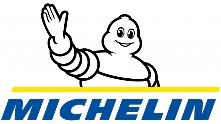
15 new Michelin stars are born! (Japon)
|
 |
15 new Michelin stars are born! (Japon)
|
Catégorie : Asie Pacifique - Japon - Gastronomie
- Gastronomie
Ceci est un communiqué de presse sélectionné par notre comité éditorial et mis en ligne gratuitement le 16-10-2012
MICHELIN Guide Kyoto Osaka Kobe Nara 2013
12 restaurants with three stars, 52 with two stars (including 1 ryokan) And 213 with one star (including 3 ryokans)
Michelin is pleased to announce the publication of the MICHELIN Guide Kyoto Osaka Kobe Nara 2013, which offers a selection of the best restaurants, ryokans and hotels in these four cities.
The Guide includes a total of 362 establishments of which 273 are restaurants, 46 hotels and 43 ryokans.
MICHELIN Guide Kyoto Osaka Kobe Nara 2013 (Japanese version) goes on sale in Japan on October 19th.
In the MICHELIN Guide Kyoto Osaka Kobe Nara 2013 selection there are:
- 12 restaurants with three stars: (5 in Kyoto, 4 in Osaka, 2 in Kobe and 1 in Nara).
- 51 restaurants with two stars: (24 in Kyoto, 14 in Osaka, 10 in Kobe and 3 in Nara) and 1 ryokan (in Kyoto)
- 210 restaurants with one star: (72 in Kyoto, 81 in Osaka, 39 in Kobe and 18 in Nara) and 3 ryokans (in Kyoto).
• 14 restaurants join the selection with one star (6 in Kyoto, 6 in Osaka, 2 in Kobe).
• A contemporary French restaurant joins the selection in Kyoto for the first time.
• 1 ryokan has been awarded 1 star (Kyoto).
MICHELIN Guide Kyoto Osaka Kobe Nara 2013 includes a wide variety of Japanese cuisine. Along with traditional and contemporary Japanese cuisine you can find soba, kushiage, teppanyaki, sushi, yakitori, izakaya, unagi, tempura, fugu, sukiyaki, oden, obanzai, shojin, yuba, beef specialities and chicken specialities. We also recommend a range of other international cuisines such as Korean, Chinese and French, as well as steakhouses. This year, 9 traditional Japanese, 1 contemporary Japanese (ryokan), 1 izakaya, 2 fugu, 1 contemporary French and 1 Chinese restaurant join the selection with one star.
Michelin updates the MICHELIN Guides every year in order to provide the most reliable information possible for our readers. Our team of inspectors is full-time Michelin employees with a professional knowledge of the hospitality industry and they pay all their bills in full. As well as revisiting all the restaurants and hotels selected in previous editions, they are always on the lookout for other establishments that could be interesting to our readers.
In Japan, as in the 22 other countries covered by the MICHELIN Guide, a consistent selection is ensured by awarding stars based on the same criteria. Stars in the MICHELIN Guides have the same value all over the world, so that a one star restaurant in Osaka offers the same quality as a one star establishment in, say, New York or Paris.
The same five criteria are:
- the quality and compatibility of the ingredients
- the preparation and the flavours of the dish
- the chef’s personality as revealed through his or her cuisine
- value for money
- consistency over time and across the entire menu.
Stars apply only to ‘what is on the plate’ and are awarded solely for the quality of the cooking.
• Three stars mean exceptional cuisine, worth a special journey.
• Two stars mean excellent cooking, worth a detour.
• One star means a very good restaurant in its category.
A restaurant that receives one or more stars is not only one of the best in its country but also one of the best in the world.
The restaurants we choose are classified by fork-and-spoon symbols according to the levels of comfort and style of service. Pavilions denote the comfort of hotels and the comfort of ryokans. When these symbols are in red it indicates that the establishment is particularly charming.
Bernard Delmas, President of Nihon Michelin Tire announced, “The MICHELIN Guide has been enjoyed by its readers for over a century and in 2007 it embarked on new adventures in Asia. The MICHELIN Guide Tokyo was published in 2008 and two years later The MICHELIN Guide Kyoto Osaka was born. Today we are proud to present the 4th edition of this guide to the Kansai region and are delighted to present this new selection once again in autumn, when Japan is full of such wonderful produce. Our inspectors have been busy finding restaurants to recommend to you, our readers, and we hope that you will enjoy the stars which shine so brightly in Kansai”.
The first MICHELIN Guide France was published in August 1900. Distributed free of charge (until 1920) and originally intended for motorists, the guide contained a wealth of practical information, including tips on using and repairing tires; city street maps, and lists of gasoline outlets, hotels and mechanics. For the Michelin brothers, the objective was to speed up the development of the automobile, and consequently the tire market. They wanted to promote and improve travel by making it safer and more enjoyable—in other words, to enhance mobility, which is still today the common goal of Michelin’s maps, guides, atlases and other publications. Every year, in more than 90 countries around the world, Michelin publishes some 10 million maps, atlases, tourist guides, and restaurant and hotel guides—and always with the same focus on quality.
|
|





